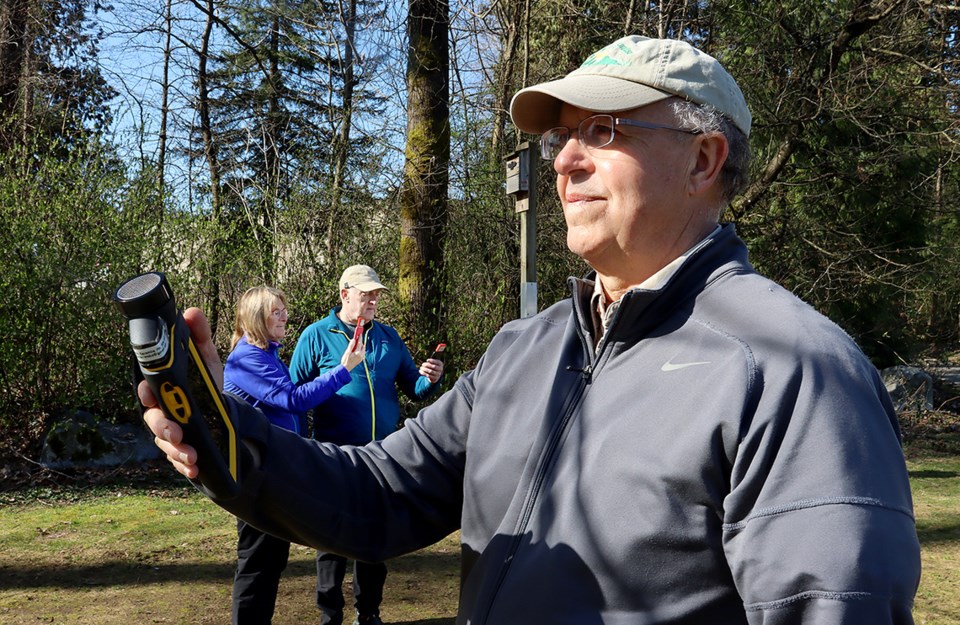Port Moody is going to the bats.
Or rather, the bats are coming to Port Moody.
In a brief ceremony at the beginning of Tuesday's (March 28) council meeting, the city received its official designation as the fifth bat-friendly community in British Columbia.
Port Moody achieved its certification from the Community Bats Program of BC last December.
Danielle Dagenais, the program’s regional coordinator, said the certification helps "ensure our local bat populations are loved for their importance."
She added bats are one of the most common wildlife inhabiting urban areas, but they’re often overlooked because of their nocturnal lifestyle.
Bats perform a valuable service pollinating plants that contribute to the food cycle, said Coun. Kyla Knowles, who even sports a bat tattoo because she's such a fan of the winged mammals.
They’re also a voracious pest controller, according to local naturalists.
John Saremba, the bat team coordinator for Burke Mountain Naturalists, said a single bat can eat 600 to 1,000 flying insects in an hour.
But, he added, their benefits are often overshadowed by superstition and poor public relations based upon years of lore and misunderstanding.
"There's not much known about bats."
Saremba said as more people become aware and educated about bats, their thirst for knowledge about the fascinating creatures only snowballs. For instance, bats don't stop to drink, they quench their thirst on the fly; some dip long tongues into the water as they skim low over lakes and lagoons, while others have the ability to gather refreshment by dipping their chests in a body of water and scooping it up, much like a waterbomber aircraft gathers water for fighting forest fires.
On April 28, Saremba will be conducting a special bat walk and talk at the Rotary loop trail in Westhill Park.
Port Moody will also be holding other outreach events and bat habitat enhancement projects, like the installation of bat-friendly gardens, are planned. And there's a plan to make special bat kits with acoustic detectors and resource materials available at the library by the end of summer.
As well, Port Moody is incorporating bat habitat features in a number of its ecological restoration projects along Shoreline Trail and Inlet Park to further build upon bylaw protections for tress and streams that are already in place.
To help inform the city's efforts, a team of undergraduate students from BCIT has been working for the past eight months on an ecological assessment of bat habitat around the northern section of Shoreline Trail.
Up to 10 species of bats live in the South Coast region, including the endangered Little Brown Myotis species.
In a previous report, Port Moody environmental coordinator, Karen Devitt, said bats face several threats, including:
- habitat loss
- climate change
- pesticides
- noise pollution
- collisions with vehicles
- predation from cats
Dawson Creek was the first community in B.C. to be certified bat-friendly in 2016; it's since been joined by Richmond, Delta and Peachland.



